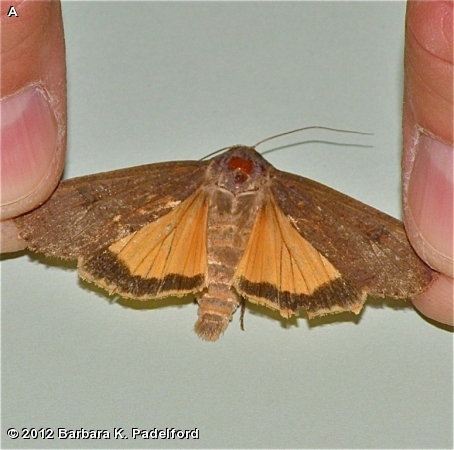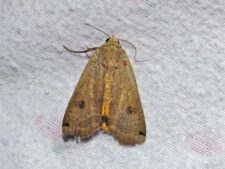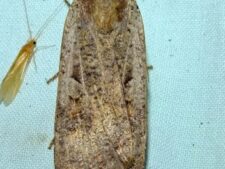
The Large Yellow Underwing has a forewing length of about an inch. The forewing varies from pale tan to dark brown. The reniform spot is filled with gray and black scales. There is a prominent black sub apical spot. The hindwing is golden yellow with a black terminal band that is thicker at the costa becoming thinner at base. The first instar caterpillar is yellow-green. The last instar is brown with a buffy subdorsal stripe bordered on top by black hemispheres. It grows up to about 1.75 inches.
A native of Eurasia, this moth was accidentally introduced into Nova Scotia, Canada in 1979. It has since spread into most of the U.S. It is very common in some parts of the U.S. It has been seen here in September 11, 2012 when it came to artificial lights at Neale Woods. It was also seen again at Neale Woods in 2013 and Fontenelle Forest in late July 2016 at the National Moth Week event.
Another name for this species is Winter Cutworm. The species spends the winter as a caterpillar and is active during thaws. Any caterpillar seen in winter is likely to be the Large Yellow Underwing caterpillar. The larvae eat various grasses and the leaves of a variety of crops and forbs.
Disclaimer: The content of NatureSearch is provided by dedicated volunteer Naturalists of Fontenelle Forest who strive to provide the most accurate information available. Contributors of the images retain their copyrights. The point of contact for this page is: Babs Padelford.


